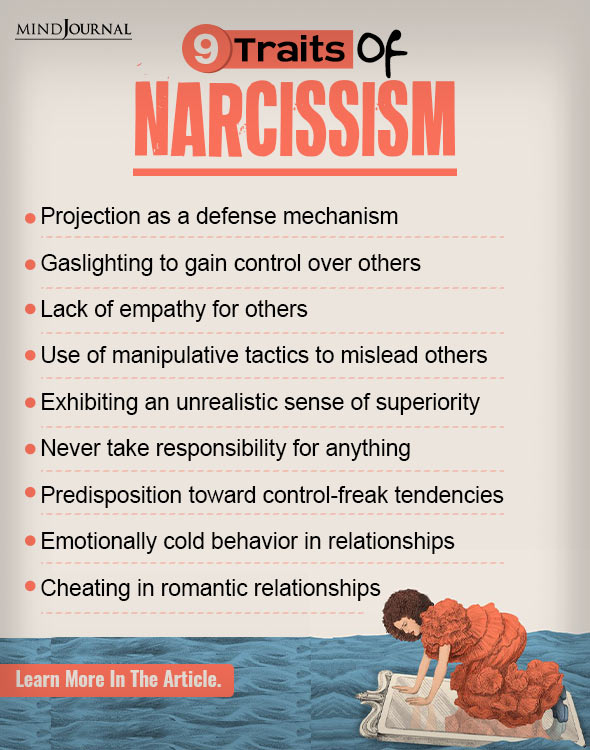Abuse comes in many forms. Often we perceive abuse as physical violence, but there are several narcissistic manipulation tactics to emotionally abuse and enforce control over their victims. This is the secret language of narcissists which they use to manipulate and traumatize their victims.
Society assumes that everyone has a conscience and the ability to empathize. In fact, 1 in 25 people in the United States is estimated to be sociopaths, according to Harvard psychologist Martha Stout.
Narcissists (those who meet the criteria for Narcissistic Personality Disorder) and their like-minded cousins, sociopaths, and psychopaths, speak in the language of crazy-making, projection, word salad, gaslighting, and pathological envy.
While I will be focusing on narcissistic abusers in this post, keep in mind that all three are unable to empathize with others and frequently exploit others for their own agenda. If you encounter someone with narcissistic traits, they could very well fall towards the extreme end of the spectrum and be a sociopath or psychopath.

These pathological individuals walk among us every day in their false masks, often unseen and noticed because of how eerily normal they are. They can be of any gender, background, and socioeconomic status.
Oftentimes, they are charming, charismatic, the life of the party, able to hook their victims in and dupe the public effortlessly. It’s very possible you’ve dated, worked with, had a family member or friend with Narcissistic Personality Disorder or Antisocial Personality Disorder in your lifetime – even if you didn’t know it then.
Learning the emotional language of these predators means acknowledging that their cruelty is not only explicit but implicit, deeply ingrained in nuances in their facial expressions, gestures, tones, and most importantly, the contradictory mismatch between their words and actions. Most importantly, their cruelty is deliberate and designed to control and ultimately destroy their victims.
Their manipulation is psychological and emotionally devastating – and very dangerous, especially considering the brain circuitry for emotional and physical pain are one and the same. What a victim feels when they are punched in the stomach can be similar to the pain a victim feels when they are verbally and emotionally abused, and the effects of narcissistic abuse can be crippling and long-lasting, even resulting in symptoms of PTSD or Complex PTSD.

These types of abusers are fluent in manipulation, well-versed in sadism, in control, and in rage – their deliberate cutting down of you, which can be best described as “death by a thousand cuts,” can be just as slow and insidious as it is swift and vicious. It is akin to psychological and emotional rape – a sordid violation of boundaries and of the trust the victim has given his or her abuser.
Narcissistic abusers can attack at any given moment, using their choice weapons of sarcasm, condescending remarks, namecalling, and blameshifting whenever they perceive you as a threat or whenever they need entertainment in the form of an emotional reaction.
Read: 10 Signs To Spot A Manipulator and Stop The Exploitation
They can also use their nonverbal language in the form of a sadistic smirk, the cold deadness in their eyes while professing to love you, their bored, sulky looks, or their cruel laughter to bully you into believing that you are inferior to them.
There are three key pieces of information that narcissists frequently collect in the idealization phase of the relationship that they later wield against you in the devaluation and discard phases using their language of cruelty.
Narcissistic Manipulation Tactics: 3 Ways Of Control And Manipulation
1. The flaws, shortcomings, insecurities, and secrets you’ve confided in the narcissist about.
The narcissistic abuser rejoices when you share your wounds, your struggles, and your triggers early on. It is then that much easier for them to get underneath your skin and inside of your mind.
During love-bombing, you are likely to feel so trusting and open with a narcissist that you share everything with them: your past, your heartbreaks, what you perceive to be your flaws. You may see this as a way of establishing rapport, a connection with your partner, a way of being vulnerable and intimate.
A narcissistic abuser sees it as dinner laying itself on the table. They will pretend to support you and empathize with you when you reveal these to them initially, but will later use these to provoke you, belittle you and demean you during the devaluation phase.

Remember: the narcissist has no limits as to what he or she will use. If you tell your narcissist you’re insecure about your weight, be prepared for covert and overt put-downs about your body in the devaluation phase. If you reveal to a narcissist that you’ve been through past trauma, such as being sexually assaulted, it won’t be long before they are using degrading lingo in the bedroom to make you feel like a used object.
They thrive on the fact that you are being retraumatized. Their ability to make you regress right back into the original trauma with just one turn of phrase makes them feel powerful. And they live for that power because it is the only power they have in their pathetic, empty lives.
To a narcissist, any open wound is an invitation to cut deeper and the narcissist can and always will cut a wound even deeper than the first.
2. Your strengths and accomplishments, especially the ones they are pathologically envious of.
Initially, when you were on the pedestal, the narcissist couldn’t get enough of your strengths and accomplishments. They couldn’t stop raving about you to family and friends, showing you off, treating you like a trophy, an essential part of them. Their association with you inevitably made them feel superior and important. It bolstered their false image of being a normal human being who could get a “prize” like you.
In the devaluation phase, a narcissist will literally translate your strengths into perceived flaws. Once you were “confident and sexy,” – but now you’re “cocky and vain” (a clear projection of themselves, of course). Before, you were “intelligent and driven,” and now you’re just a “know-it-all” or a “smartass“.
They gaslight you into believing that your value and worth are not real, all while projecting their own sense of inferiority onto you. They will degrade, minimize, and ignore what you accomplish, now acting as if it means nothing to them and as if it is of little importance or value to the world.
Read: 10 Things I Wish I’d Known About Gaslighting Before It Happened To Me
They will feed you falsehoods about your lack of competence and ability. They will claim to be better at you, all the while stealing your ideas. They will taunt you into believing that you’re not capable of the smallest of tasks, even if you are out of their league professionally and personally.
They will threaten to ruin your reputation and they will often sabotage major events as well as support networks you may have, attempting to turn everyone against you. They will trample upon your dreams, your aspirations, your beliefs, your personality, your goals, your profession, your talents, your appearance, your lifestyle – all the while extolling their own.

Their sudden turn of language takes a toll; it is traumatizing, shocking, and unexpectedly vicious. Everything they once praised will inevitably be turned and twisted into a weakness. This is because they cannot stand you “winning” and being better than them at something.
To them, everything is a competition and a game that they must win at all costs. They seek to destroy you in every way possible so that you, in turn, destroy and sabotage yourself – all the while they sit back, relax and watch the unraveling of everything you’ve worked hard for.
3. Your need to please them and their need to be perpetually dissatisfied.
The narcissist cultivated your need for his or her validation and approval early on in the idealization phase. By making you dependent on his or her praise, they conditioned you to seek the excessive admiration that only they could dole out.
Now, as they devalue you, they use your need for validation to their advantage by withdrawing frequently, appearing sullen at every opportunity, and converting every generous thing you do for them as a failure on your part that falls short of their ludicrous expectations. Nothing can meet their high standards and everything wrong will be pointed out. In fact, even the things they do wrong shall be pinned on you.
Their blame-shifting language, passive-aggressive sulky behavior, and narcissistic rage at the slightest injury become all-consuming for the victim, as the victim attempts to strengthen his or her efforts to meet the standards of the narcissist – standards which inevitably set the victim up for failure.

For this, the victim is met with verbal assault, accusations, and unfair comparisons which instill in him or her a pervasive sense of worthlessness and never being “enough.” If the victim ever attempts to make the narcissistic abuser accountable for being a decent human being, they will lash out in rage, blaming them for the abuse and stonewalling the victim into silence. They love to have the last word, especially for the language they’ve created.
Read: 5 Things A Narcissist Says To Make You Feel Crazy
Taking back our control and power from a narcissistic abuser means going to war with the language they use against us. This means seeking to validate, professional help for the abuse we’ve suffered, detaching from these people in our lives, learning more about the techniques of abusers, finding support networks, sharing our story to raise awareness, and finding the appropriate healing modalities that can enable us to transcend and thrive after their abuse.
We can channel this experience of abuse for our highest good and for the greater good. We just have to be willing to create in its place what I call a “reverse discourse”—a new language and a rewriting of the narrative that instead lifts us, motivates us, inspires us, and revives us by replacing the narcissist’s cutting words with our own powerful truth.
Therefore, now you know how abusers manipulate and traumatize their victims. Such abusers will use these above manipulation tactics to manipulate and traumatize you. So, protect yourself from abusers who manipulate and traumatize their victims.
Copyright © 2016 by Shahida Arabi.
All rights reserved. No part of this entry, which is an excerpt from my upcoming book, may be reproduced, distributed, or transmitted in any form or by any means, including photocopying, recording, or other electronic or mechanical methods, without the prior written permission of the author. This includes adaptations in all forms of media.
This entry is cross-posted at Self-Care Haven and protected under DMCA against copyright infringement. It has been reprinted on The Minds Journal with the permission of the author.
Inspired by the post? Instead of reiterating ideas from this post or posting it in its entirety it without permission – please consider sharing the link back to the post through social media.
Interested in learning more about narcissistic abuse? Pre-order my new book on narcissistic abuse, Becoming the Narcissist’s Nightmare: How to Devalue and Discard the Narcissist While Supplying Yourself. Also be sure to check out my first book, The Smart Girl’s Guide to Self-Care.















Leave a Reply